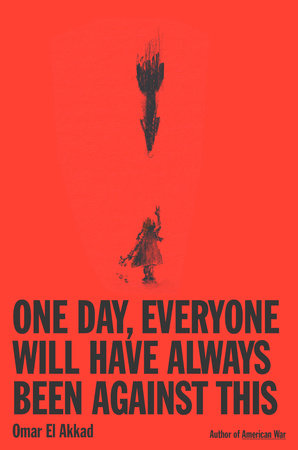More on this book
Community
Kindle Notes & Highlights
Read between
September 5 - September 15, 2025
It has been, for as long as I can remember, the memory that anchors my overarching view of political malice: an ephemeral relationship with both law and principle. Rules, conventions, morals, reality itself: all exist so long as their existence is convenient to the preservation of power. Otherwise, they, like all else, are expendable.
For members of every generation, there comes a moment of complete and completely emptying disgust when it is revealed there is only a hollow. A completely malleable thing whose primary use is not the opposition of evil or administration of justice but the preservation of existing power.
Victims of empire, those who belong, those for whom we weep, are murdered, subjected to horror, their killers butchers and terrorists and savages. The rage every one of us should feel whenever an innocent human being is killed, the overwhelming sense that we have failed, collectively, that there is a rot in the way we have chosen to live, is present here, as it should be, as it always should be. Victims of empire aren’t murdered. Their killers aren’t butchers, their killers aren’t anything at all. Victims of empire don’t die, they simply cease to exist. They burn away like fog.
Maybe there never was work, only a passing through time and consequence. Maybe we don’t read writers so much as become deeply acquainted with the sites of their passing, or their refusal to pass. What they thought beautiful or grotesque enough to document. Where they chose to expend their finite capacity for concern.
One of the most damaging, longest-lasting consequences of the War on Terror years is an utter obliteration of the obvious moral case for nonviolence. The argument that violence in any form debases us and marks the instant failure of all involved is much more difficult to make when the state regularly engages in or approves of wholesale violence against civilians and combatants alike. Instead, the case for nonviolence becomes, in the ugliest way, pragmatic: the state wants violence, because in that playing field it maintains every advantage, from bigger guns to total immunity to the privilege
...more
And in doing so, one might find that what drives and absolves the state of so much evil isn’t the fear that not doing so will allow some terrorist to destroy the fabric of free society. But rather that the evil itself is necessary to the system it protects. That in the end there is no international rules-based order, no universal human rights, no equal justice for all, simply fleeting arrangements of convenience in which any amount of human collateral is deemed acceptable so long as it works in the empire’s interest.
On one side is a portion of society that fears nothing more than the discontinuation of normalcy. That believes, regardless of what horror each new day brings, what matters most is to live as one had lived before, answering emails and meeting deadlines and maintaining productivity.
What is wrong with me that I can’t keep living as normal? What is wrong with all those people who can?
Fine, then, side with the broken, lesser world, side with the countries that can’t pay their debts or keep their lights on or maintain even the semblance of civil society, side with the terrorists (you will always be said to side with the terrorists), side with, as the chief political instigator of our present moment put it, darkness against light—and don’t come crying to us when we crush you. Perhaps that is what this all comes to, in the end, some pathetic adherence to the idea that certain peoples simply need to be crushed.


